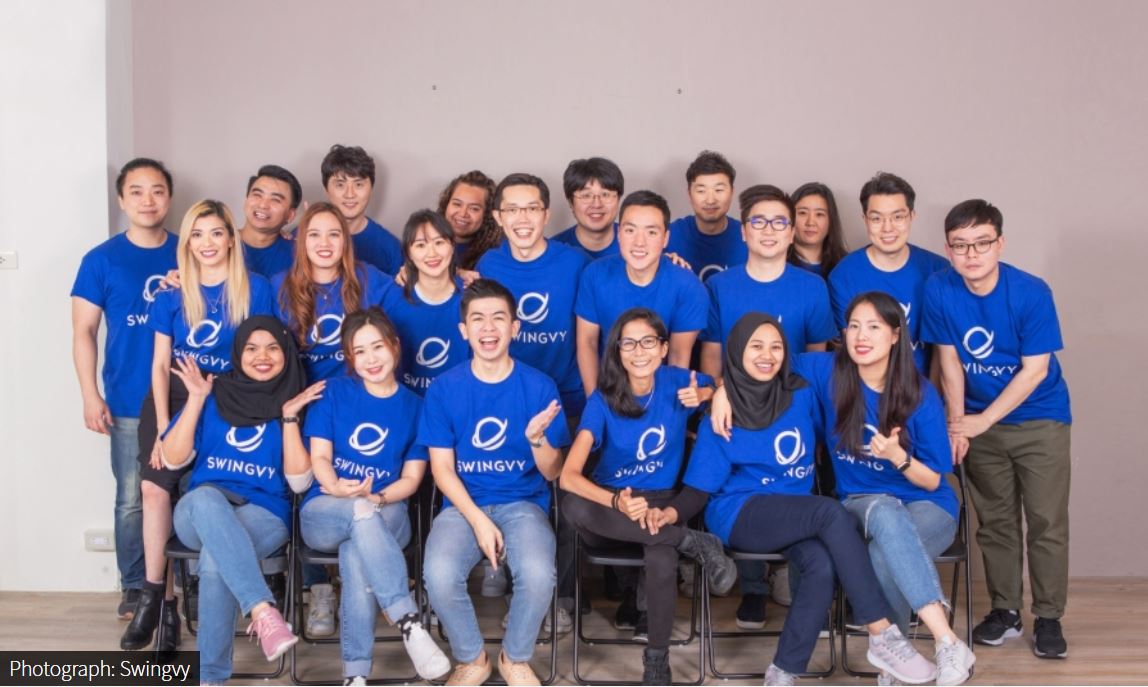HR tech startup Swingvy enters Taiwan for its base of 1.5 million small and mid-sized businesses

Swingvy, an HR tech startup based in Singapore, has announced its entry into Taiwan in May, following the Series A fundraising from Samsung Ventures last year.
Founded in 2016, Swingvy runs a cloud-based platform that offers HR, payroll, and benefits solutions to small to medium-sized businesses (SMBs) on a freemium basis.
Jin Choeh, co-founder and CEO of Swingvy, Taiwan as a market presents great opportunities for growth, with its 1.5 million SMEs in need of an effective solution to replace paperwork and legacy software.
“In Taiwan, there isn’t a market leader in HR tech for SME yet,” the CEO says. “Our goal is to be one of the top 3 HR tech startups in a year, and we want to gain a dominant market share in three to five years.”
With its product, Swingvy is working to help Taiwanese SMEs deal with basic HR tasks, expense management, as well as automatic payroll calculation and processing, for saving the time and cost spent on HR; by using the software, a company needs to spend just three hours per month on traditional HR matters, reducing associated costs by 80%.
Swingvy’s solution, in addition to cutting significant costs by bringing HR functions in-house, saves a lot of time for a company by handling all of them in a single platform. All employees can submit a claim, apply for a leave, or time-off in the Swingvy platform instead of turning to a human HR, who then often needs to go through a series of paperwork to process them.
Since the task of entering data into the system falls to the employees, HR managers will have the time to do other things that matter to the growth of the company, like building a organizational culture that values creativity and innovation, Cheoh explains.
For companies who haven’t built an HR team, they may invest the capital in other functions like R&D and sales/marketing, which Cheoh considers the two main columns that support a tech startup like his own.
As in Singapore and Malaysia, Swingvy says it plans to provide insurance options for companies in Taiwan in the near future. It means HR managers will be able to get the employees insured in several clicks.
“From day one, we have a vision that we want to be the operation system of companies,” Choeh says. “In the following two years, we are launching Swingvy insurance and will need time to expand this product line to Taiwan.”
Now serving over 8,000 clients across Malaysia, Singapore, and Taiwan, Swingvy looks to expand into Japan and other countries in Southeast Asia, which makes up a market of 70 million SMBs.
Choeh believes to fully enjoy the benefits from his product, customers need to be in a market where the GDP is above $8,000 per capita. “Rather than relying on low-cost workforce, they will realize that using a software will bring a higher return on investment,” he explains.

Globally, COVID-19 has expedited digital transformation for companies, and it has been a boon for Swingvy.
Although the company says it has lost some of the SME clients who shut down their business amid economic fallout from the pandemic, a great number of mid-sized companies have taken to implement its solution.
“While SMBs care more about saving time and cost, these mid-sized companies shifts to us from traditional HR software as part of their crisis management plan,” Cheoh explains.
Legacy HR software, often installed on office PCs, might not be relevant after COVID-19, since many companies are considering allowing their employees to work from home.
As a SaaS provider, this policy change creates a huge growth opportunity for them, Cheoh says, and in response to that, Swingvy is adding a new time attendance system to its platform and plans to make it available to clients in all markets. Their employees will soon be able to punch in/out every day via an app.
During the pandemic, Cheoh suggests that businesses create a protocol for remote work and be sensitive to the needs of their employees.
〔Original :Meet Startup @ TW〕
https://meet.bnext.com.tw/intl/articles/view/46615